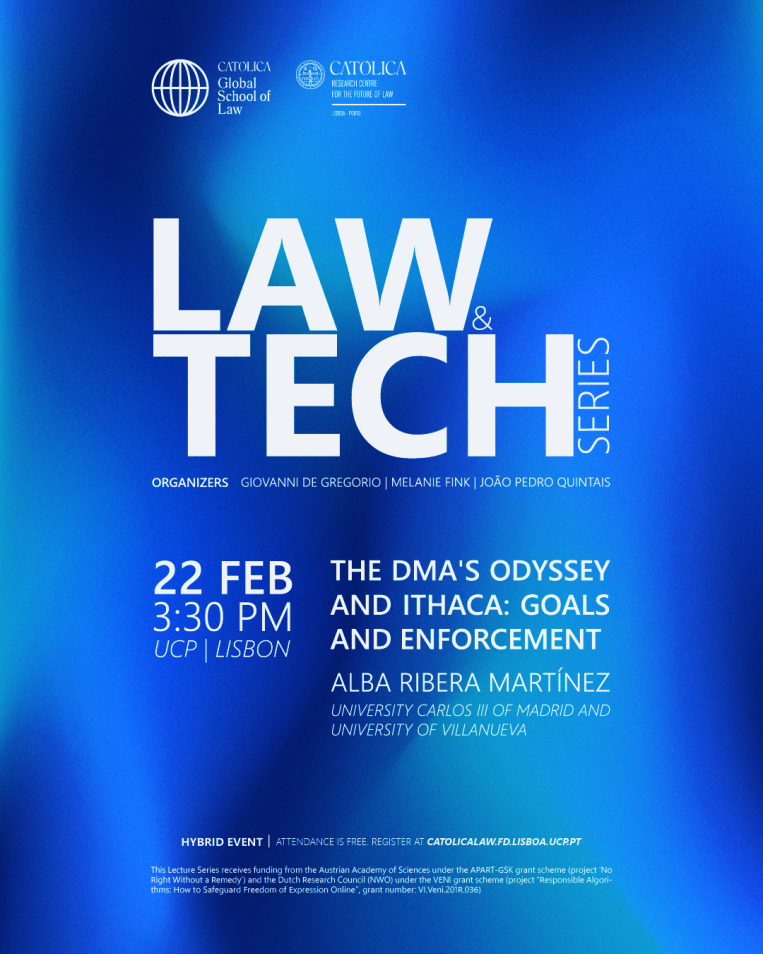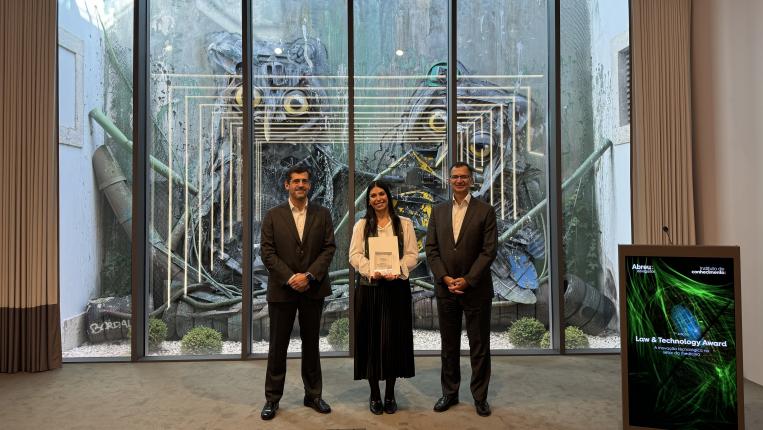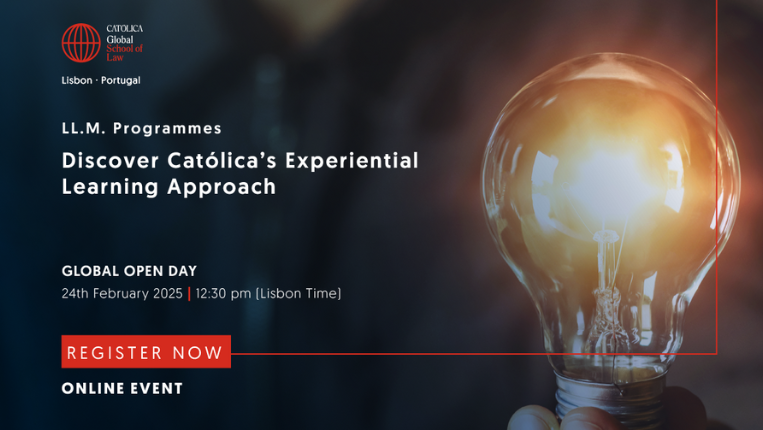On 22 February at 3:30 pm (Lisbon time), Católica Global School of Law and the Católica Research Centre for the Future of Law will host the inaugural lecture of the 'Law and Tech Series'.

The featured speaker is Alba Ribera Martínez, a Ph.D. Student in Competition Law at University Carlos III of Madrid and Lecturer in Competition Law at Universidad Villanueva. Alba, an expert in antitrust, specializes in digital markets, data protection, and fundamental rights. In this lecture, Alba will address the Digital Markets Act (DMA) in a conversation with Professor Giovanni De Gregorio (PLMJ Chair in Law and Technology, Católica Global School of Law).
The event will be held at the Lisbon campus of Universidade Católica Portuguesa, in Room Descobrimentos (1st floor of the Library Building), and will be streamed online. Attendance is free, but registration is required through the ONLINE FORM.
About this Series
This law and tech lecture series at Católica is organised by Giovanni De Gregorio (PLMJ Chair in Law and Technology, CGSL), Melanie Fink (Leiden University), and João Pedro Quintais (University of Amsterdam).
The goal of this series is to underline the primary challenges raised by digital technologies, particularly considering the expansion of artificial intelligence (AI). While the private sector, driven by online platforms, is involved in developing these systems from content moderation to biometrics, also public authorities increasingly employ AI systems in areas such as crime prevention, criminal justice, healthcare, immigration, or the administration of public benefits. Reliance on these tools carries the promise of addressing some of the known flaws in human decision-making by improving accuracy, efficiency, and potentially bias. At the same time, automation also poses a challenge to our human-centered systems of control of private and public power. In this Lecture Series speakers from different backgrounds explore these topics with an emphasis on the impact these technologies have on accountability, public interest, and fundamental rights.
This Lecture Series receives funding from the Austrian Academy of Sciences under the APART-GSK grant scheme (project 'No Right Without a Remedy’) and the Dutch Research Council (NWO) under the VENI grant scheme (project “Responsible Algorithms: How to Safeguard Freedom of Expression Online”, grant number: VI.Veni.201R.036).



